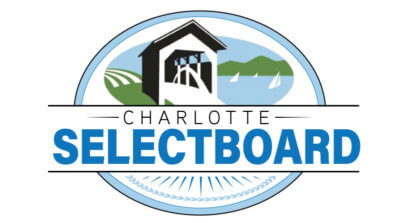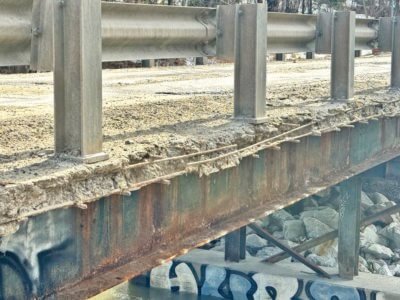Selectboard cuts its proposed budget
[vc_row][vc_column][vc_empty_space][/vc_column][/vc_row][vc_row][vc_column][vc_column_text]
Voting remains on Town Meeting Day and by Australian ballot
A meeting with just two items on the agenda took almost four hours on Wednesday, Feb. 1.
The selectboard had planned a special meeting to discuss reversing its vote on switching to an Australian ballot and to hold an informational discussion about the proposed budget for 2023-24. However, a large crowd showed up, in person and online, and they had a lot to say.
At the outset, board member Lewis Mudge expressed umbrage about allegations that the board’s decision to switch to Australian ballot had been made suddenly, once again foregoing a traditional town hall meeting with voting from the floor for some items, most notably on the budget. He said it wasn’t sudden, that they had been discussing this change for several meetings.
Mudge took great exception to social media and emails he’d seen where selectboard members were called dictators.
The board and residents in attendance also discussed the relative merits of ways to ensure more public participation in town decisions, and whether voice voting or Australian ballot is the best method to boost resident involvement. More people vote in town elections on issues decided by Australian ballot than attend Town Meeting Day and participate in voice voting. But, an individual resident can potentially have a profound impact on a budget by introducing a motion from the floor in voice voting.
“We want to maximize the number of townspeople who can participate in this decision,” board member Louise McCarren said. “If that is in fact the Australian ballot, let’s go with that.”
Chair Jim Faulkner said they had given the issue a lot of thought. A big factor in their decision was choosing to err on the side of safety and decrease the chance of spreading COVID, with the virus still lingering.
“We were following the governor’s suggestion,” Faulkner said. “We’re thinking that his experts know more than the selectboard.”
Christina Asquith asked for the selectboard to reverse its decision because she believes town meeting can be held safely. She supports in-person town meetings because it gives people opportunities to discuss issues among themselves instead of only with the selectboard.
A recently passed bill (H.42), gives towns the authority to postpone town meetings until later in the year, Rep. Chea Waters Evans said.
Board member Matt Krasnow lobbied for moving Town Meeting Day back until early summer, so it could be held outside under a tent to limit the risk of infection.
Lynne Jaunich, who is retiring as Charlotte’s representative to the school board, said she had experienced having a budget defeated, and the selectboard should not be afraid of having its budget shot down.
Sometimes having a budget defeated is a good thing, Jaunich said. “Democracy is really messy.”
Jaunich also argued for the board to stick with its original decision to switch to Australian ballot because town meeting is not an equitable opportunity for everyone in the community to exercise their right to vote.
Although it is a treasured Vermont tradition, times have changed, she said, “It is a privileged opportunity for those who are able to sit in an indeterminate-length meeting.”
Town clerk and treasurer Mary Mead also encouraged the selectboard to stand by the vote they took to hold the vote on Town Meeting Day by Australian ballot.
The board spoke of equity, fairness and safety at the Jan. 16 meeting, Mead said. “I would hope that you would stand by your decision that you made for all the good reasons that you made.”
The board voted down a motion from Krasnow to delay town meeting day until June 3. Krasnow and McCarren were the only board members voting in favor of postponement.
No motion was made to rescind voting by Australian ballot, so there won’t be voice voting at this year’s town meeting.
Budget revision
After the decision not to postpone Town Meeting Day, the board took the budget to the chopping block for some last-minute expense cutting.
Board member Lewis Mudge noted how many people were upset by how high the proposed budget was: “People aren’t happy. Let’s get this rate down.”
Last year the selectboard cut the budget dramatically late in the budget process. Krasnow applauded the “great job” that Faulkner had done then: “You spearheaded some pretty Herculean efforts to slash the budget at the last minute.”
Krasnow said part of the rise in this year’s budget is due to almost no budget increases for two years, despite having to contend with inflationary pressures and supply chain issues.
“I think it’s important that the public understand that historical arc,” he said. “What we are seeing is two years’ worth of inflationary pressure, not one year.”
After this year’s eleventh-hour budget cutting was done on Feb. 1, the proposed estimate for the total budget for fiscal year 2023-24, including the fire and rescue and library budgets, is $4,221,070. This year’s total budget (2022-23) is $3,790,108, so the proposed increase for next year over this year is $430,962 — an increase in spending of just over 11 percent.
The over $4 million total budget includes spending for the fire and rescue service that will be approved in separate articles on the ballot. Voters will be asked to approve almost $2,931,000 expenses for what is called the selectboard’s budget in one article, and they will be asked to approve almost $966,000 in spending for fire and rescue in another article and just under $325,000 for the library in another article.
The fire and rescue budget article does not include almost $100,000 in debt service on two fire trucks and an ambulance. Nor does the library budget article include the cost of benefits for library employees. A good bit of discussion was devoted to debate about whether these benefits should be broken out and included in the library budget, but the selectboard decided benefits should be broken out for all town departments in next year’s budget.
Krasnow estimated that about two-thirds of the increase in the municipal budget is due to cost-of-living increases.
Paying for the town budget is a small portion of a homeowner’s total tax bill. The total tax rate, including the school system’s estimated budget, is predicted to be almost $1.81 per $100 of property value. Of this, the Charlotte municipal tax rate is predicted to be almost 23 cents per $100 of property value and the school property taxes are predicted to be $1.58. So, if these estimates prove to be correct after the town’s property reappraisal is completed in the summer, town property taxes are less than 13 percent of a homeowner’s total property tax bill.
Town administrator Dean Bloch said that lowering the town’s tax rate doesn’t have a very significant impact on the total property tax bill: “If the estimated municipal tax rate for fiscal year ’24 is reduced to, I’ll say, 15 cents, that doesn’t change the taxes a whole lot.”
After the reappraisal, town officials estimate property valued at $100,000 would owe more than $1,800 in taxes, or about $9,300 on property valued at $500,000. (Obviously, the odds of having a home valued at $100,000 in Charlotte are very low; that figure is included to make mental calculations easier.)
The property reappraisal will mean that the value of property in town will go up. Various percentages have been repeated and reported, but according to town clerk and treasurer Mary Mead, the total value of property in town should go up by 18 percent because property is appraised too low now. Property value has gone up during the COVID property-purchasing frenzy.
The reappraisal is required because Charlotte’s common level of appraisal (commonly referred to as CLA) is too low. The common level of appraisal is a method Vermont uses to ensure that each town is paying its fair share of education property tax.
Charlotte’s common level of appraisal is 82 percent now.
“We’re trying to bring our grand list up 18 percent to get to that perfect number,” Mead said. “The property values on average are looking at an 18 percent increase. Some will be more; some will be less.”
After the arduous proposed expense cutting at the Feb. 1 meeting, the remaining four board members (McCarren had left the meeting) voted 4-0 to submit an amended article for voters to approve budget expenses of $2,930,908 for the coming fiscal year on Town Meeting Day — down by $163,000 from the $3,093,908 in estimated expenses in the original Jan. 16 proposal for the town budget article.
Click to view larger image.
[/vc_column_text][/vc_column][/vc_row][vc_row][vc_column][vc_single_image image=”24722″ img_size=”large” onclick=”img_link_large” img_link_target=”_blank”][/vc_column][/vc_row]
Related Stories
Popular Stories
If you enjoy The Charlotte News, please consider making a donation. Your gift will help us produce more stories like this. The majority of our budget comes from charitable contributions. Your gift helps sustain The Charlotte News, keeping it a free service for everyone in town. Thank you.
Andrew Zehner, Board Chair




